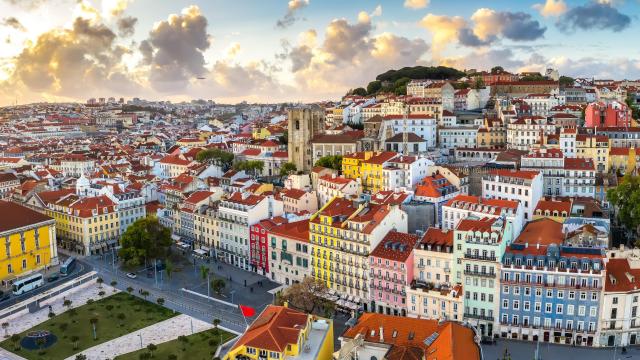Portugal’s government passed a package of new laws and regulations on Thursday aimed at combatting the country’s housing crisis. Among the changes: No more short-term rental licenses are to be granted in the nation’s urban centres — meaning no more new city Airbnbs.
Portugal has also ended its “golden visa” program, which granted non-European Union residents EU passports in exchange for investing more than €350,000 in real estate in certain areas. Often, through “golden visas” property developers would flip buildings into short-term rentals (usually Airbnbs) to maximise their profits.
“The great appeal of our cities is not to turn [us] into some sort of Disneyland,” Prime Minister Antonio Costa, said at a press conference on Thursday, as reported by Bloomberg. “There is no city that can remain authentic if it isn’t able to maintain its residents.”
For a little over a decade, the country — which is one of the poorest in Western Europe and among all OECD nations — has aggressively courted international tourism, investment, and development in an attempt to grow its economy and re-invigorate its historical cities. And on paper, Portugal’s policies worked. The country became a destination for wealthy Chinese and American investors, property prospectors, and digital nomads seeking sun and sea on a budget.
Now though, the downsides of such policies have clearly overshadowed the benefit to locals.
Portugal’s annual wages have stayed relatively stagnant over past decades, averaging less than $US30,000 ($41,646). Between 2020 and 2021, average wages rose just about 2%, according to OECD data. In 2022, more than half of workers earned less than €1,000 per month. Yet the average cost of renting in the country’s largest city and capitol, Lisbon, has risen by 37% in the past year alone, according to a report from Reuters.
In Lisbon’s Santa Maria Major parish, which encompasses most of the city’s downtown area, short-term rentals now account for more than 60% of listed properties. And country-wide, the number of foreign residents climbed by 40% in the past decade, according to Bloomberg.
In 2019, Portugal’s government passed a law making housing a human right. And this new group of regulations is a major step towards fulfilling the promise inherent in that lofty proclamation. Though, for many, it is still not enough.
Housing advocacy groups say the measures passed this week are incomplete, as long as the government continues to support other programs meant to attract wealthy foreigners like the “digital nomad” visas that the country began offering in October 2022, according to Reuters.
The trend of high-salaried tech and other remote workers moving abroad has caused problems for many places that have become particularly popular landing pads. Mexico City, for instance, has been inundated by Americans, and tensions there are rising as locals get pushed out of some neighbourhoods. Airbnb, too, has contributed to rising housing costs and limited the availability of long-term rentals in the U.S. and internationally.
Many other countries besides Portugal offer or have offered “golden visas,” including the United States. But, facing pressure from locals and burgeoning housing crises, some other countries have also been ending their programs. The United Kingdom scrapped it’s scheme about a year ago, and Ireland shut its “golden visa” path down earlier this week.
